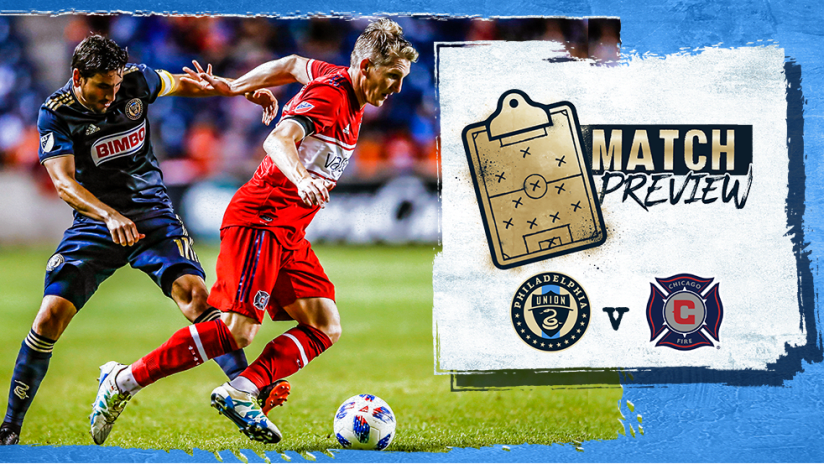Only two seasons ago, Chicago Fire were one of the top teams in the Eastern Conference. Nemanja Nikolic was scoring at will, and Veljko Paunovic looked as though he had created a free-flowing team that could make a run at the top of the conference in coming seasons.
It was not to be.
Now the Fire are fighting for a playoff spot, and — more worryingly — any semblance of reliable structure seems to be lost.
On Wednesday night, the Fire looked like a more talented side but could not control Columbus Crew in transition. The Crew, who had secured a single road result coming into the day, got a late goal off (of course) a transition and held on for a point in Bridgeview. Paunovic sought to drop his team into a defensive stance after CJ Sapong gave the Fire the lead, but it wasn’t to be.
Why can’t this team, which oozes talent up front and has enough stability in midfield to, theoretically, hold leads and turn these draws into wins?
First of all, there’s a bit of bad luck involved. Chicago’s Expected Goal Differential is far higher than their actual goal differential, suggesting they may have the capacity to make a run soon.
But a far bigger issue for Paunovic is that his team cannot hold control of a match even when they appear to be controlling it. Think back to the second half of the Union’s match against New York City FC, when they became stretched vertically and couldn’t stop the home side’s moves through midfield. The Fire’s push and pull between their attackers and back line leaves the midfield in too much space following turnovers, and even a team like Columbus, missing their creative fulcrum, can move into the attacking third with relative ease.
Of course, Chicago still has Dax McCarty in the center, so there is always an element of danger. McCarty, like Kyle Beckerman at Real Salt Lake and Michael Bradley in Toronto, no longer has the legs to cover the ground he once did. But his ability to read the game still means he can jump passes through the center and trigger the short-field attacks that are most dangerous in modern soccer.
In short, there are many reasons to believe Chicago has the pieces to be a competitive MLS side; their play on the field just isn’t one of them.
For the Union, recovering from their worst match of the season is the biggest key to the game. That means playing with the confidence of a first place side rather one that just took a sucker punch to the chin. Even if players like Jamiro Monteiro and Kai Wagner can’t return on Saturday, the Union need to lean heavily on their system — compactness, quick movements to open up in transition — if they want to topple Chicago and show they have the ability to carry this thing through to the end of the year.
Up front, Andrew Wooten is likely to get a longer run out after technically having the Union’s only shot on net last game (though VAR called it back). Wooten could slot into the first eleven, but given how Chicago allows their fullbacks to get isolated in transition, Jim Curtin may opt for a 4-2-3-1 even if Ilsinho can’t go 90 minutes (which, in the heat, he likely cannot even if healthy). That would push Fafa Picault wide and push Wooten wide. The issue there? A lack of healthy depth up front means you don’t have a lot of places to turn if you struggle to produce.
The Union will look to get back on track against Chicago beginning at 7:30 p.m. ET on Saturday, July 21. Bring your energy, and your water!












